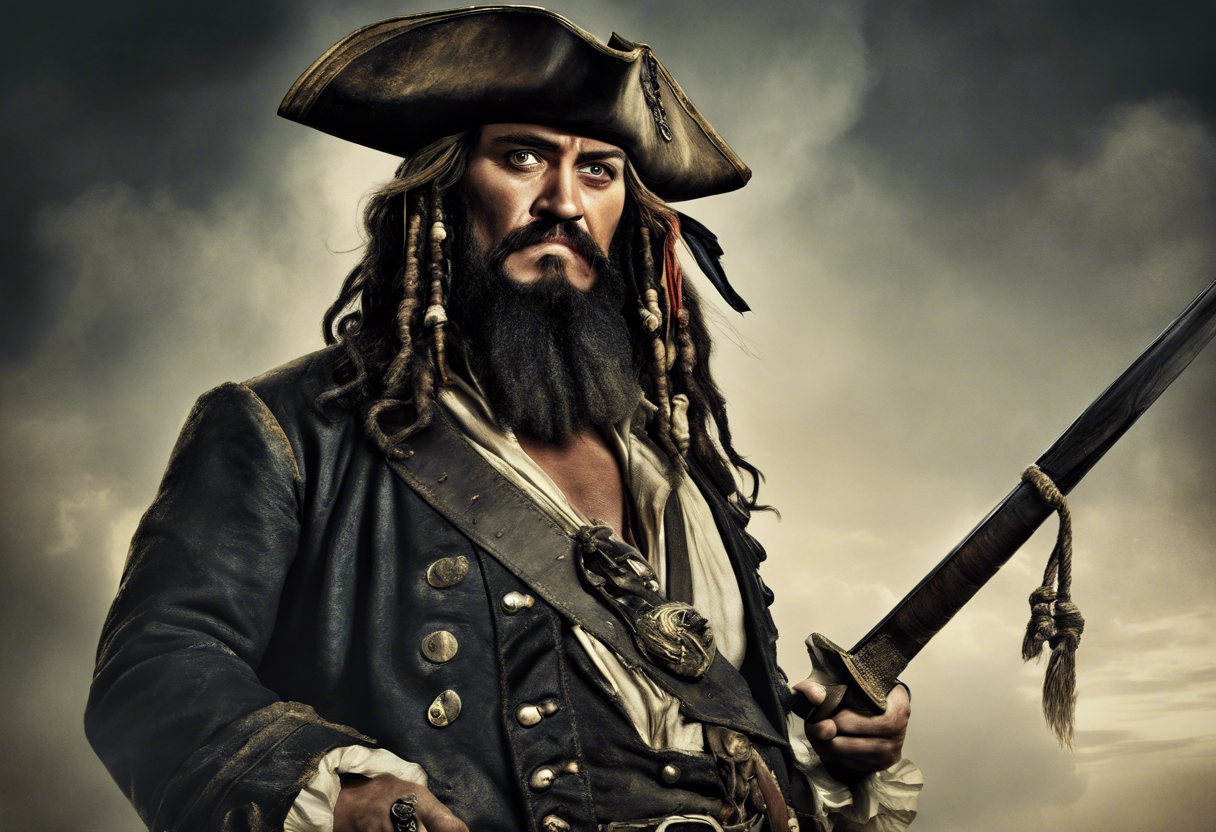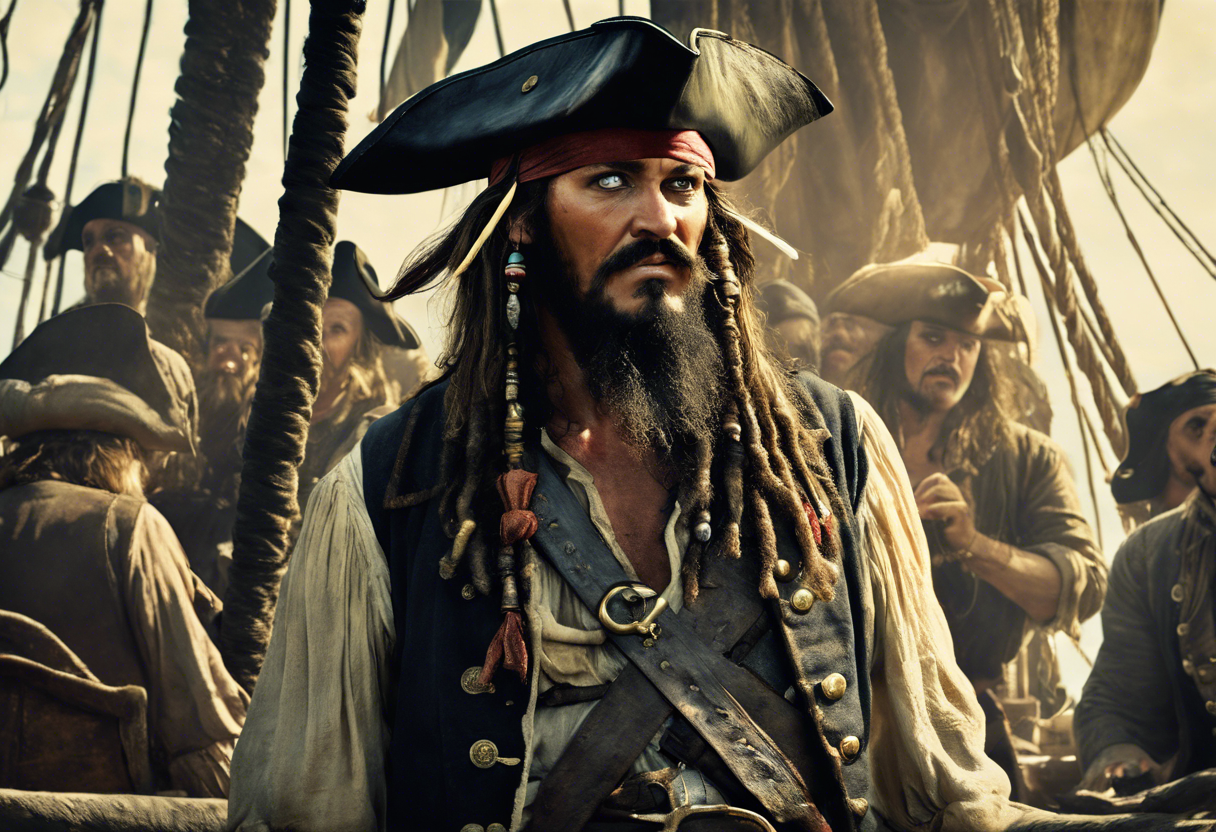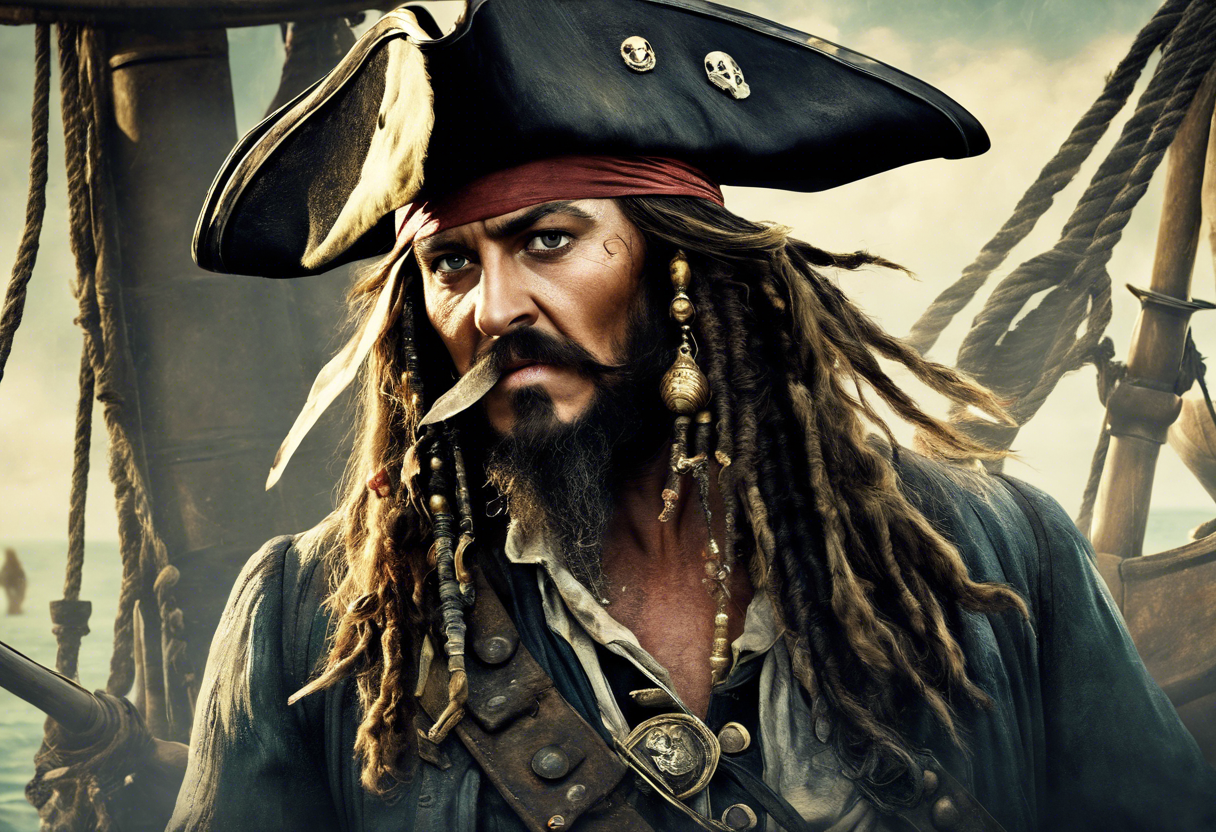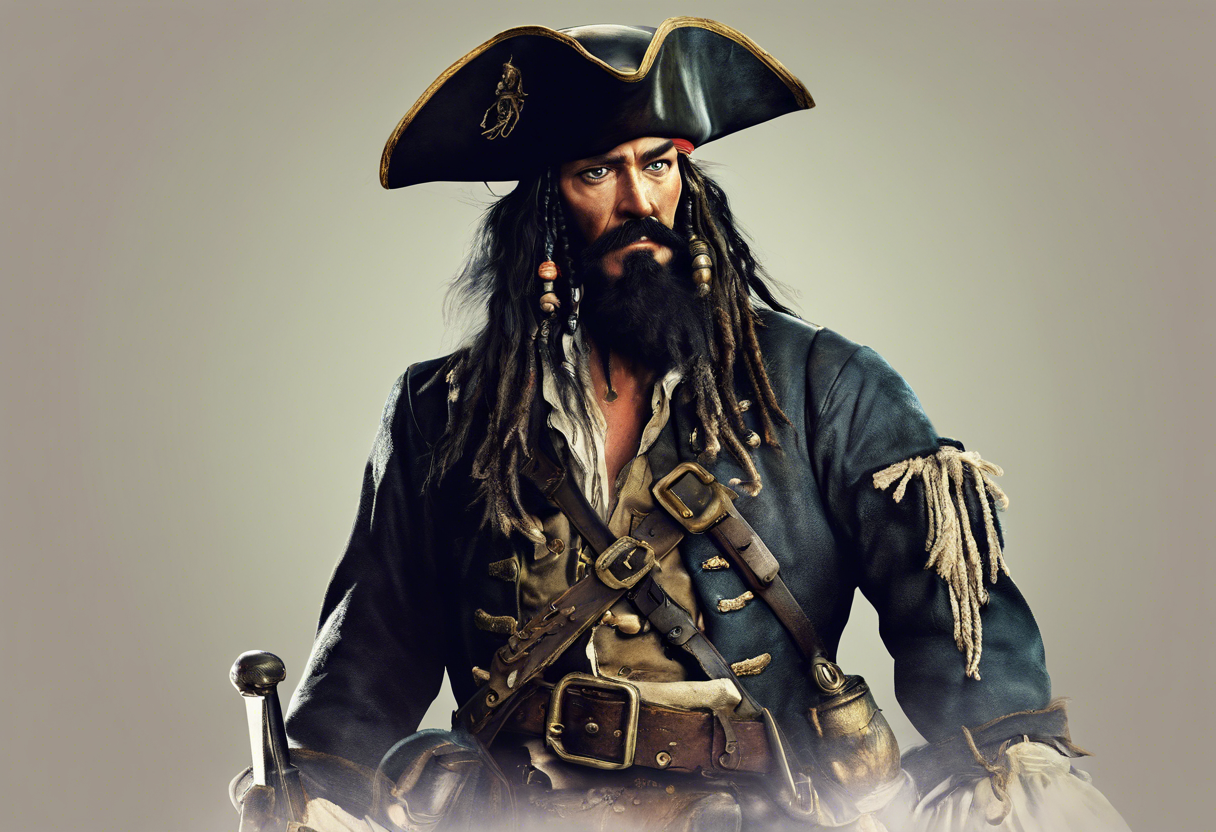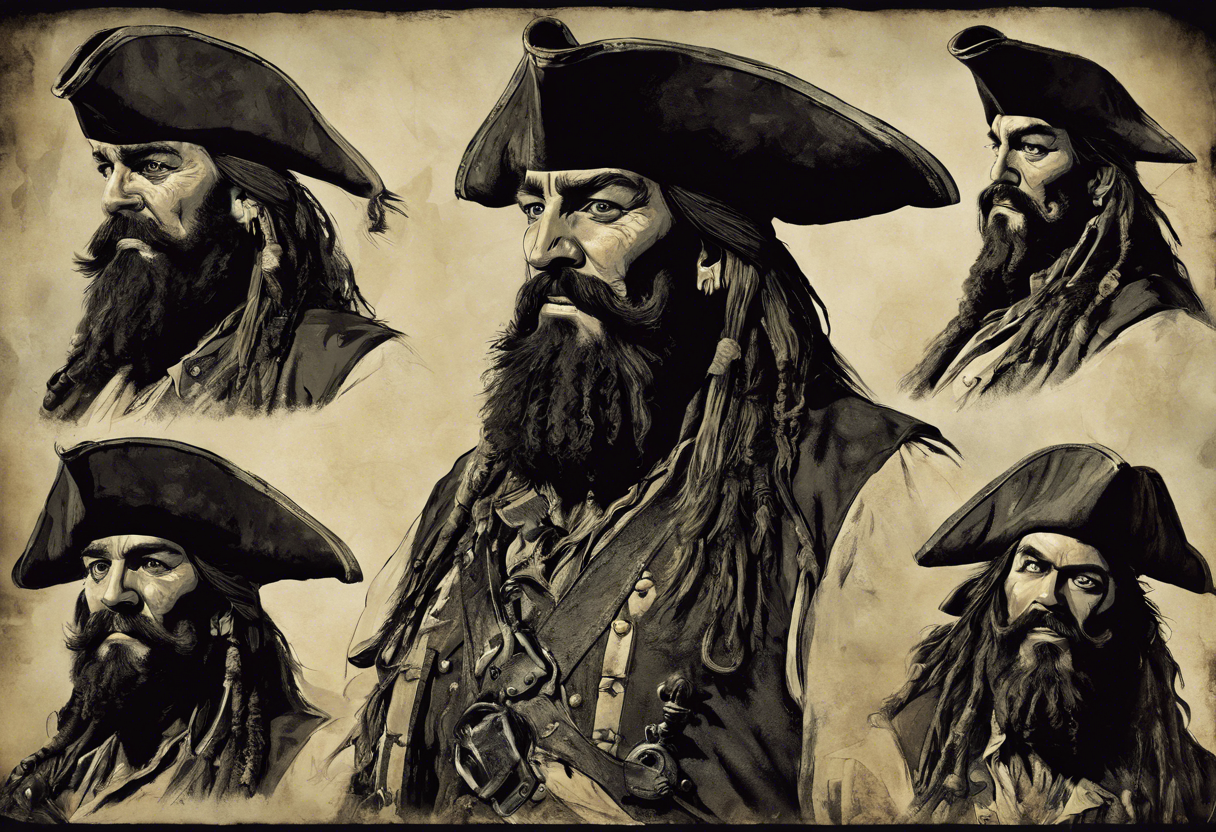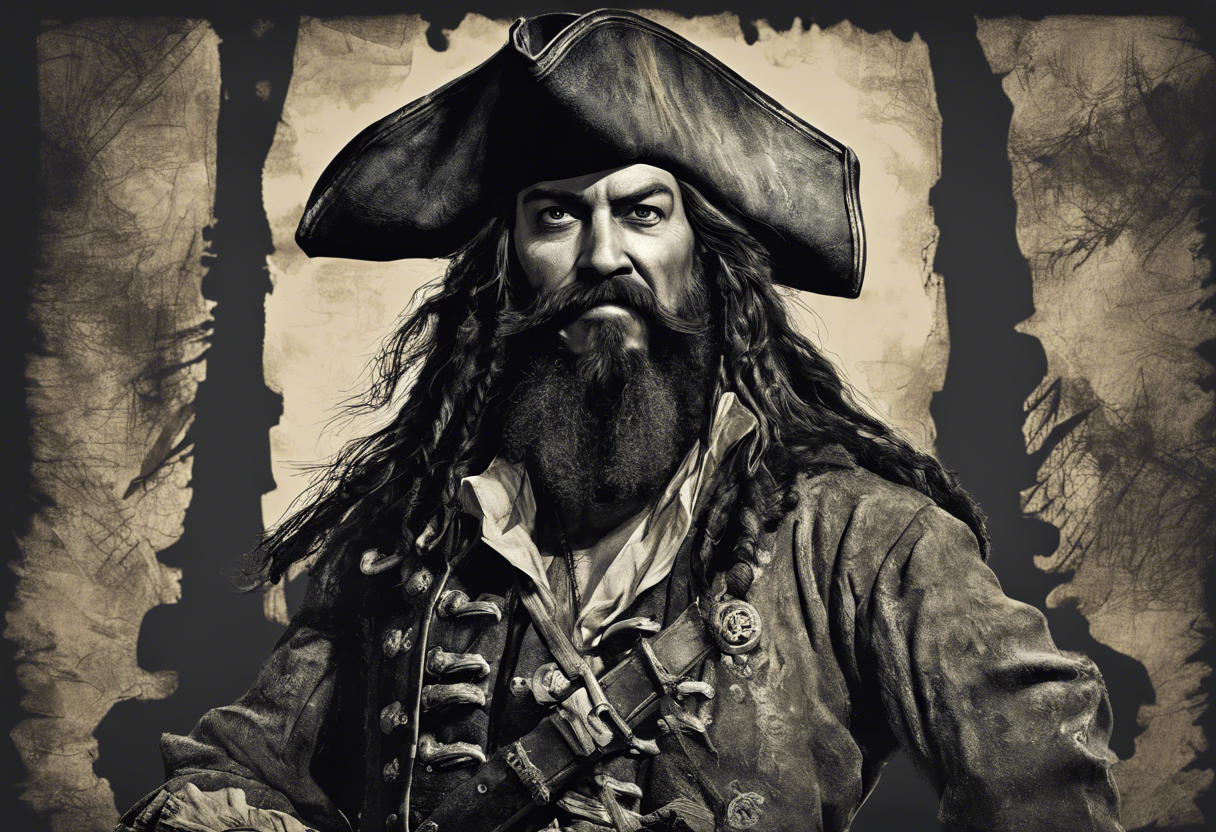Contents
Blackbeard in the Pirates of the Caribbean Franchise
Introduction
Blackbeard, portrayed by Ian McShane in the fourth installment of the Pirates of the Caribbean series, "On Stranger Tides," is a character deeply rooted in historical and literary lore. The real Blackbeard, whose real name was Edward Teach, was a notorious English pirate who operated in the Caribbean and along the eastern coast of North America during the early 18th century[2][3][4].
In the Pirates of the Caribbean universe, Blackbeard is the captain of the Queen Anne’s Revenge and is known for his formidable presence, cunning, and supernatural abilities. His character draws heavily from the historical accounts and myths surrounding the real Blackbeard, making him a compelling and intimidating figure in the narrative.
Role in the Story
Blackbeard’s storyline in "On Stranger Tides" revolves around his quest for the Fountain of Youth. He is driven by a desire to extend his life and maintain his power, which is fueled by his obsession with the supernatural and his fear of mortality. Blackbeard is aided in his quest by his daughter, Angelica, who has a complicated relationship with Captain Jack Sparrow[1].
Throughout the film, Blackbeard’s journey is marked by his ruthless tactics and his ability to manipulate others to achieve his goals. He uses his magical sword, the Sword of Triton, to control the winds and the rigging of ships, making him nearly invincible at sea. His ship, the Queen Anne’s Revenge, is a symbol of his power and is equipped with 40 guns and a crew of over 300 men[3].
Blackbeard’s conflict with Hector Barbossa is a central theme in the story. Barbossa, seeking revenge for Blackbeard’s attack on the Black Pearl and his own maiming, joins forces with the British to find the Fountain of Youth before Blackbeard can. This leads to a series of battles and strategic maneuvers between the two pirate captains[1].
Character Analysis
Blackbeard’s personality is defined by his cunning, ruthlessness, and charismatic leadership. He inspires fear in those around him, not just through his physical appearance but also through his actions and reputation. His ability to weave myth and reality together makes him a master manipulator, capable of controlling his crew and intimidating his enemies[2][4].
Despite his fearsome reputation, Blackbeard has a complex and somewhat tragic character. His obsession with the Fountain of Youth reveals a deep-seated fear of death and a desire to transcend mortality. This vulnerability makes him more relatable and human, despite his monstrous actions[1].
Blackbeard’s strengths lie in his strategic thinking and his mastery of the supernatural elements that surround him. His weaknesses, however, include his overconfidence and his underestimation of his adversaries, particularly Jack Sparrow and Barbossa. These flaws ultimately lead to his downfall in the film[1].
Themes and Symbolism
Blackbeard embodies several themes that are central to the Pirates of the Caribbean franchise. One of the most significant themes is the struggle between mortality and immortality. Blackbeard’s quest for the Fountain of Youth symbolizes the human desire to cheat death and live forever, highlighting the consequences of such ambitions[1].
Another theme is the power of myth and legend. Blackbeard’s character is built on the myths and stories that have been told about him, both in the film and in historical accounts. This blurs the line between reality and myth, making him a larger-than-life figure[2][4].
The character also symbolizes the corrupting influence of power. Blackbeard’s obsession with his own power and longevity leads him to commit atrocities and manipulate others, illustrating the dangers of unchecked ambition[1].
Cultural Impact
Blackbeard’s character in the Pirates of the Caribbean series has had a significant cultural impact. He has reinforced the public’s perception of pirates as fearsome and charismatic figures, drawing from the rich historical and literary heritage of piracy. The film’s portrayal of Blackbeard has also influenced popular culture, with his image and character traits appearing in various forms of media and entertainment[2][4].
The historical Blackbeard has been a source of inspiration for many works of literature and film, including Robert Louis Stevenson’s "Treasure Island" and J.M. Barrie’s "Peter Pan." The character’s enduring appeal lies in his combination of brutality and charm, making him a compelling figure in both historical and fictional contexts[2].
Critical Reception
Blackbeard’s portrayal in "On Stranger Tides" received mixed reviews from critics. Some praised Ian McShane’s performance for bringing depth and complexity to the character, while others felt that the film did not fully explore the potential of Blackbeard’s character[1].
Audiences generally responded well to the character, appreciating the blend of historical accuracy and fictional embellishment. However, some critics argued that the film’s storyline and character development were overshadowed by the action and spectacle, which detracted from the overall impact of Blackbeard’s character[1].
Legacy
Blackbeard’s legacy in the Pirates of the Caribbean franchise is that of a formidable and intriguing villain. His character has contributed to the rich tapestry of pirate lore in popular culture, reinforcing the image of pirates as complex and multifaceted figures.
The historical Blackbeard continues to inspire new works and adaptations, ensuring that his legend endures. In contemporary discussions, Blackbeard remains a symbol of piracy’s golden age and the enduring fascination with the high seas and the characters that inhabit them[2][4].

